
1 THE VIETNAM WAR ISN'T CALLED THAT IN VIETNAM
The name itself shows a non-native understanding of the conflict. Instead, the two decades of fighting in Vietnam, from 1954 to 1975, are called "the American War". The Vietnamese made the assumption that the foreign forces who fought in that war were all Americans, but they were not: large numbers of Thais, South Koreans and Australians, to name but a few, fought on the side of South Vietnam.
2 THE CONFLICT HAD ROOTS IN 19TH-CENTURY FRENCH IMPERIALISM
In 1858, Tourane (modern Da Nang) was attacked and captured by the French admiral Charles Rigault de Genouilly. After leaving a small garrison in place to hold the city, he then journeyed south and captured Saigon (today's Ho Chi Minh City) in early 1859.
This started a century of French occupation, and most of the southeast Asian peninsula (including Vietnam) was renamed French Indochina. The indigenous population was never completely cowed, so rebellions and guerrilla attacks were regular occurrences. The Vietnamese rebels used the dense jungles and mountainous terrains to their advantage in order to attack French forces and escape detection.
During World War II the region came under the control of pro-Axis Vichy forces and Japan, so the Americans armed and trained local forces to fight against them. After the war France tried to reclaim the area, but the better-trained and better-equipped guerrillas defeated France once and for all at the battle of Dien Bien Phu in 1954.
3 THE VIETNAM WAR DIDN'T ONLY TAKE PLACE IN VIETNAM
This story is from the May 2023 edition of BBC History Revealed.
Start your 7-day Magzter GOLD free trial to access thousands of curated premium stories, and 9,000+ magazines and newspapers.
Already a subscriber ? Sign In
This story is from the May 2023 edition of BBC History Revealed.
Start your 7-day Magzter GOLD free trial to access thousands of curated premium stories, and 9,000+ magazines and newspapers.
Already a subscriber? Sign In
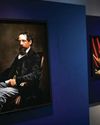
'Dickens's evocation of the fears, excitement and confusion of childhood is peerless'
DR LEE JACKSON ON WHY CHARLES DICKENS REMAINS RELEVANT TODAY
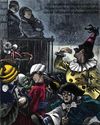
THE AUTHOR GOES ABROAD
Dickens expanded his horizons and boosted his fan-base by venturing overseas - but global fame came with a cost
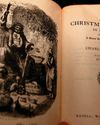
REVIVING THE FESTIVE SPIRIT
A Christmas Carol wasn't just a bestseller - it changed the way that Britons chose to mark the festive season
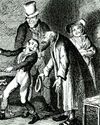
GIVING THE POOR A VOICE
From Hard Times to Oliver Twist, Charles Dickens used his pen to help illuminate the lives of the less fortunate
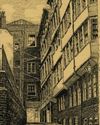
A JOURNEY THROUGH DICKENS'S LONDON
The works of Charles Dickens are synonymous with visions of Victorian London. We talk to Dr Lee Jackson about the author's love of the capital, and the locations that most inspired him
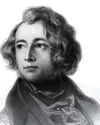
EXCEEDING EXPECTATIONS
Dr Lee Jackson chronicles Charles Dickens's journey from down-at-luck teenager to titan of Victorian literature
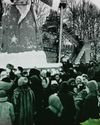
GIFTS, TREES & FEASTING
We take a journey through the photo archives to reveal how Christmas and its many traditions have been celebrated over the years - and around the world
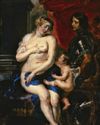
WHAT GREAT PAINTINGS SAY
We explore the story behind an allegorical painting that celebrates the triumph of love over hate, peace over war
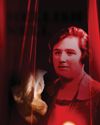
HELLISH NELL
Malcolm Gaskill delves into the life of Helen Duncan - the fraudulent Scottish medium whose ectoplasm-filled seances saw her ending up on the wrong side of the law
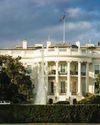
7 THINGS YOU (PROBABLY) DIDN'T KNOW ABOUT THE WHITE HOUSE
Presidential historian Dr Lindsay M Chervinsky reveals some of the most surprising facts about the world-famous US residence